PureCircle notes rise in stevia-enabled product launches
3 Apr 2018Global launches of beverage and food products containing stevia have grown steadily since 2012, and in 2017 alone, increased more than +10% vs. 2016, the company notes, citing data from Mintel.

PureCircle has reported that the use of stevia leaf sweetener in beverages and food products continues to expand.
Global launches of beverage and food products containing stevia have grown steadily since 2012, and in 2017 alone, increased more than +10% vs. 2016, the company notes, citing data from Mintel.Launches of beverage products containing stevia grew 11% from 2016 to 2017, while launches of food products containing stevia grew 10% from 2016 to 2017. Top categories for launches containing stevia in 2017 included snacks, juice drinks, dairy, carbonated soft drinks and confectionery.Producers of food and beverage products designed for kids (age 5-12) are also making more use of stevia, PureCircle notes, as it enables them to formulate products with no- or reduced-calories using a plant-based sweetener. In 2017, launches of products containing stevia with a claim for kids (aged 5-12) increased 16% from 2016.According to PureCircle, major companies launching products with stevia leaf sweetener last year included Calbee Foods, The Coca-Cola Co, Groupe Danone, Grupo Bimbo, Kraft Heinz, Nestle, PepsiCo, Seven & i Holdings; and Unilever. Stevia is a zero-calorie sweetener made from a plant, explains the company, while other major zero-calorie or high-intensity sweeteners (aspartame, sucralose and acesulfame potassium) are not. The usage of stevia leaf sweeteners has grown dramatically, PureCircle points out. In 2012, stevia was used in 16% of food and beverage products launched with high intensity or diet sweeteners. By 2017, that number had risen to 28%. Aspartame, however, is becoming less widely used, the company says. In 2012, aspartame was used in 36% of new foods and beverages utilizing high intensity sweeteners. By 2017, that number was down to 25%. That means, looking at foods and beverages launched with high intensity sweeteners in 2017, plant-based stevia was used more than aspartame, according to PureCircle.Beverage and food product launches with stevia, the company continues, are occurring worldwide with all global regions participating. The top two regions were Asia/Pacific (40%) and Europe (22%), followed by Latin America, North America and Middle East/Africa.Related news
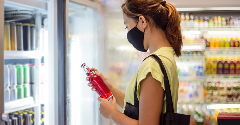
Asian beverage brands deal with rising costs
4 Jan 2023
Decreasing bottle sizes or increasing prices? Asian beverage brands are finding “creative approaches” to manage rising costs, according to industry analysts.
Read more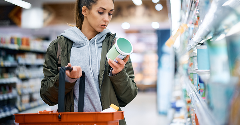
Value-seeking US consumers cut back on food spending
2 Jan 2023
Cheaper items, smaller sizes, and shorter grocery lists: inflationary effects coupled with a global long-term recession are set to continue shaping food spending habits, according to a recent Rabobank report.
Read more
Opportunities grow for lower-caffeine coffee
23 Dec 2022
Many consumers want the mental focus of caffeine without the jitters, prompting a wave of product development such as “half caffeine” ground coffee or ready-to-drink (RTD) cold brew blended with relaxing botanicals.
Read more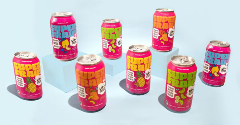
Superfrau upcycles liquid whey for energy drinks
22 Dec 2022
US company Superfrau turns surplus whey into sustainable, upcycled-certified dairy products for the recovery drinks market.
Read more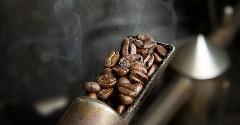
Swedish food agency: One in 10 coffee brands contain excess acrylamide
7 Dec 2022
New findings from the Swedish Food Agency have revealed three of 29 coffee products sampled contained acrylamide above limits, reinforcing the link between levels and degree of roasting.
Read more
Editor’s choice: Our roundup of the latest women’s health products around the world
2 Dec 2022
From botanicals to combat menopause symptoms to a hydration powder for mothers-to-be, here is our roundup of the most innovative new product launches within women’s health.
Read more
The prize no brand wants to win: 2022’s most misleading products
28 Nov 2022
Food industry watchdog Foodwatch is asking consumers to vote for 2022’s most misleading product. A high-sugar vitamin water and “artisan” salad made with artificial additives are among the nominees.
Read more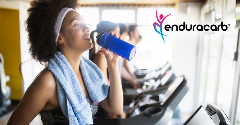
enduracarb®: A science-backed trehalose ingredient for athletic endurance
24 Nov 2022
enduracarb® is a science-backed, slow-acting carbohydrate that can power athletes’ performance. Produced using a high-purity production process, it is suitable for a wide variety of applications.
Read more
China bans celebrity endorsement of health and formula foods
22 Nov 2022
China is to ban celebrity endorsement or advertising of certain products, completely banning high profile figures with “lapsed morals” as the country attempts to drive society towards “core socialist values”.
Read more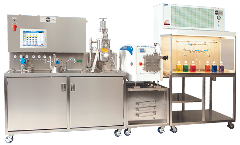
MicroThermics’ Formulators Guide to Process Selection for Plant-Based Beverages
15 Nov 2022
Plant-based beverages & products are mainstream! Come to FIE booth 4D122 & read our whitepaper to see how processing in the lab at commercial HTST & UHT conditions gets you to market faster for less!
Read more